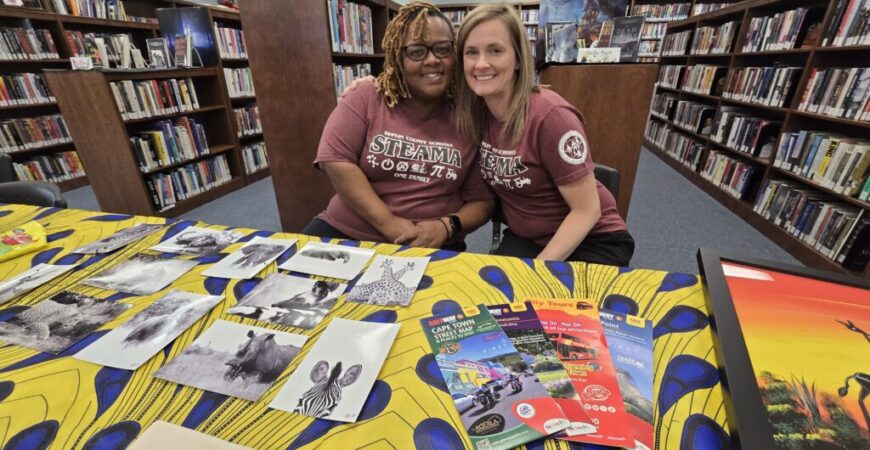When two school teachers from Duplin County applied for the 2025 Educators of Excellence Institute in South Africa, they had no idea that it would change their lives forever. Pam Stanley, a third grade teacher from B.F. Grady Elementary, said she applied because she was looking to do something different with her professional career. Emily Ludlum, a school teacher at Wallace Elementary, signed up for the adventure and what it could teach her. Both women were accepted to join a group of 12 educators across the state who attended the first Educators of Excellence Institute in South Africa.
This unique opportunity is provided by the North Carolina Museum of Natural Sciences in partnership with parks across the world. According to Educators of Excellence Institutes website, institutes have been inspiring educators across North Carolina since 1987. Some of the institute locations have included Belize, Ecuador, and Yellowstone. The 2025 institutes went to Mexico, Yellowstone, and South Africa. The South Africa trip was the inaugural international journey for this specific institute.
While Ludlum and Stanley did not know each other before the trip, they are like sisters now.
“In Africa, you wake up with the sunrise and you are busy until sunset,” Ludlum said. In the South African Institute, educators were split into groups and given tasks to complete each day.
“In addition to our group task, we had full itineraries to complete as well,” Ludlum said. The daily itineraries included searching for the “Big 5” (lions, leopards, elephants, rhinos, and water buffalo) as well as the “tiny but mighty” animals like the dung beetle. Group work cycled through drawing and writing the journal depicting the day’s activities, collecting data on wildlife and weather, and writing the day’s blog entry. Blogs helped connect families and the outside world with the participants (and they are still used to interact with their journey today). From July 20 to Aug. 4, the 12 NC educators, two teachers from South Africa, and four trip leaders traveled through the country including Kruger National Park, Wakkerstroom Wetlands, and Gwahumbe Game Reserves. The trip cost $2,100 per participant, and that included all transportation, airfare, lodging, and some meals. However, the museum does not want the cost to detract interested participants. Generous support from the Friends of the Museum and the Goodnight Education Foundation have made it possible to reduce the costs overall, and scholarships are available through the Simple Gifts Fund and the Anonymous Trust. Both Ludlum and Stanley were recipients of full scholarships.
Both Ludlum and Stanley left a part of their hearts in South Africa. What they learned there went beyond words; it inspired them both to action. Ludlum was moved to advocate for animal safety and awareness. Stanley was moved to do more trips and expand her footprint beyond the classroom and into administration and instructional development. One of the takeaways of every institute is that educators are expected to create a lesson or unit of material to take what they learn back to their schools. Both Ludlum and Stanley have made professional development presentations at their schools, but the learning didn’t stop there. In Ludlum’s class, for example, students dressed up and went on a virtual safari identifying wildlife and their needs. They read and rewrote a children’s book as a nature awareness book in response to their learning. This is just a small way that institutes are enriching classrooms across North Carolina.
Now applications are open for the 2026 Institutes. Interested parties can apply through the museum’s website.
 Twitter
Twitter Facebook
Facebook Instagram
Instagram






